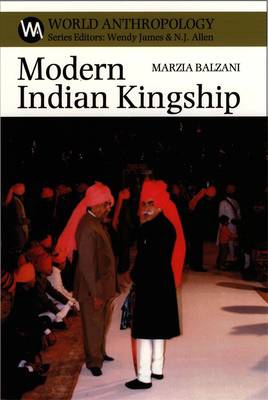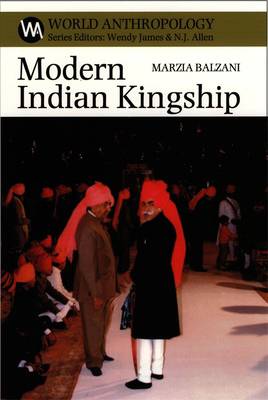
Door een staking bij bpost kan je online bestelling op dit moment iets langer onderweg zijn dan voorzien. Dringend iets nodig? Onze winkels ontvangen jou met open armen!
- Afhalen na 1 uur in een winkel met voorraad
- Gratis thuislevering in België vanaf € 30
- Ruim aanbod met 7 miljoen producten
Door een staking bij bpost kan je online bestelling op dit moment iets langer onderweg zijn dan voorzien. Dringend iets nodig? Onze winkels ontvangen jou met open armen!
- Afhalen na 1 uur in een winkel met voorraad
- Gratis thuislevering in België vanaf € 30
- Ruim aanbod met 7 miljoen producten
Zoeken
€ 76,95
+ 153 punten
Omschrijving
Addressed not only to those interested in the culture and politics of present day India, but also to those more generally concerned with theories of kingship and ritual and the complex fate of postcolonial nation states. This work is a significant contribution to the study of kingship and the ritual process, two longstanding areas of anthropological debate both within and beyond South Asia.
The Deregulation of Princes Act 1971, was designed to bring to an end the last vestiges of kingly rule in India. Part of a political process begun under British rule, the Act took away the royal privileges of the maharajas and sought fully to integrate them as citizens in a moderndemocracy. But today, a form of kingship persists in India even though legally kings no longer exist. Many former maharajas continue to exercise considerable power and influence at both local and national levels. This study is anexamination of the proceses by which royal power has survived and been transformed within modern India.
Focussed on the city of Jodhpur in the nothern state of Rajasthan, the study looks in particular at a set of ritual practices by which royal power is legitimated and consolidated through appeals to a fluid notion of tradition. Drawing upon fieldwork and archival research, this study brings together the disciplines of anthropology and history; it locates its ethnographic examples within broad comparative historical and religious contexts. states. Series editors: Wendy James & Nick Allen
The Deregulation of Princes Act 1971, was designed to bring to an end the last vestiges of kingly rule in India. Part of a political process begun under British rule, the Act took away the royal privileges of the maharajas and sought fully to integrate them as citizens in a moderndemocracy. But today, a form of kingship persists in India even though legally kings no longer exist. Many former maharajas continue to exercise considerable power and influence at both local and national levels. This study is anexamination of the proceses by which royal power has survived and been transformed within modern India.
Focussed on the city of Jodhpur in the nothern state of Rajasthan, the study looks in particular at a set of ritual practices by which royal power is legitimated and consolidated through appeals to a fluid notion of tradition. Drawing upon fieldwork and archival research, this study brings together the disciplines of anthropology and history; it locates its ethnographic examples within broad comparative historical and religious contexts. states. Series editors: Wendy James & Nick Allen
Specificaties
Betrokkenen
- Auteur(s):
- Uitgeverij:
Inhoud
- Aantal bladzijden:
- 288
- Taal:
- Engels
- Reeks:
Eigenschappen
- Productcode (EAN):
- 9780852559314
- Verschijningsdatum:
- 21/02/2003
- Uitvoering:
- Hardcover
- Formaat:
- Genaaid
- Afmetingen:
- 163 mm x 239 mm
- Gewicht:
- 498 g

Alleen bij Standaard Boekhandel
+ 153 punten op je klantenkaart van Standaard Boekhandel
Beoordelingen
We publiceren alleen reviews die voldoen aan de voorwaarden voor reviews. Bekijk onze voorwaarden voor reviews.











